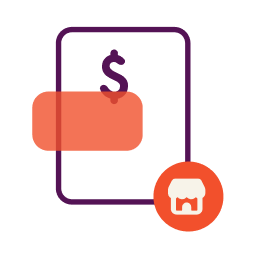Here’s one of the most common questions we get from business owners: “I have been working in my industry for a long time. I have this great idea and I am ready to strike out on my own. I need $50,000 to start up my business. Where can I get a small business loan?” Before the business is established, it’s unlikely for you to get a $50,000 loan from a bank or even from non-bank lenders like LendingClub or FundingCircle. However, if you have good personal credit, we have a fairly painless way to get a $50k small business loan: credit cards.
I know if you are Mark Cuban, you will scoff at the idea of getting a loan for your startup. I do agree business owners should save up before they start up. But I also believe it’s a great idea to have the credit options available to smooth out the bumps in the road of a business venture.
So how does it work? Basically, you will get a couple of credit cards that have at least one of the following features:
- Low annual percentage rate (or interest rate), preferably 0% introduction offer for a long time
- No cash advance fees
- No balance transfer fees
- Same interest rates for cash advance and purchases
You will then put most of your purchases on the 0% APR credit cards. If it’s something like payroll, you can take the cash out of the no cash advance fee cards and then transfer the balance to the card with 0% interest rate.
Let’s take a look at how you can get a fallback funding option using this method.
Is it Hard to Get $50,000 in Business Loans as a Startup?
Getting a startup business loan with a high loan amount can be very difficult. This is especially true with term loans. SBA loans, specifically, have a notoriously tricky application process. The Small Business Administration puts in place a lot of requirements to qualify for options, like the most common SBA 7 loan.
If you’re looking for a 20k to 50k business loan, you usually need an established business with a healthy cash flow to be able to qualify for many loan options. Often, even online lenders need you to demonstrate business success and have a solid business plan — to prove you have the eligibility to pay back the loan. If you have bad credit, that can be another obstacle to overcome, as well.
Where Can I Get $20,000 in Business Credit?
Small business owners may have an easier time finding a smaller amount of funding like $20k. But it’s far from guaranteed. The types of small business financing you could qualify for depend on factors like creditworthiness, annual revenue, and your business needs. Traditional lenders may offer lower interest rates but tend to be more rigid than online lenders about who they offer money to.
You can start by looking into options like a business line of credit, equipment financing, short-term loans, a microloan, or invoice factoring. Then, if none of those work because you’re just starting out, business credit cards might be your best bet.
Where to Get 0% Interest Rate Business Credit Cards
0% APR business credit cards are relatively easy to find, but some have steep credit requirements, so you need to know your credit score and the credit requirements of the card provider. (A Nav account can show you how closely your business data matches a credit card provider’s requirements.)
Here are four options with long introductory periods:
This card features great rewards, and new applicants receive . There’s also a annual fee for this card.
This card has a promotional financing offer of . In addition, it has great cash back rewards and a annual fee.
Although this isn’t specifically a business credit card, this card has the longest intro offer: . It also has a annual fee.
This card currently offers . Additionally, it features rich cash-back rewards and a annual fee.
Where to Get Credit Cards With No Cash Advance Fees
I have been looking for no cash advance fee cards for a while. But ultimately, I found that the best place to go is to get a credit card from your local credit union. Credit Unions are membership organizations that offer good credit products for their members. It’s not hard to find a local credit union that would offer credit cards with 0% cash advance fees and offers the same interest rates for both cash advance and credit card purchases. Their interest rates on credit cards are usually lower than big banks too (less than 10% vs. 15+%).
One example is StarOne Credit Union, which is the credit union I belong to. Their Signature Visa Rewards cards charge an 8.75% interest rate for both cash advances and purchases and $0 fees on everything: no annual fee, no balance transfer, and no cash advance fees with a $5000 minimal credit limit.
Keep in mind that if you get a personal credit card from your local credit union (or anywhere else), that card is meant for personal use. Use it for business purchases sparingly, and once your business is in a position not to use it anymore, try to stick to business credit cards and business loans (read here about why it’s important to separate personal and business finances).
Using the Two Cards Together to Get a 0% Credit Line
With a local credit union credit card and a business credit card with a promotional APR, you can use the business credit card for all the purchases that can be put on credit cards. You can get cash from the local credit union credit cards and then transfer the balance to the business credit card. You can do this repeatedly for the first X months (depending on the introductory financing offer) without incurring any financing cost. You can then switch to another 0% introductory offer card and continue this 0% borrowing.
Once you are two years in business, have hundreds of thousands of revenue and are profitable, you will have a lot more business financing options. The goal of this article is to help you get there as a startup.
What Are the Best Business Credit Cards to Use for Startups?
The best business credit cards that will help a startup get off the ground have a low monthly fee (or no monthly fee), a 0% intro APR, and a good rewards program. Your credit history and personal credit score will factor into whether or not you qualify for the top-tier credit cards for business.
But business credit cards can be much faster to qualify for, don’t require a personal guarantee, and work with all types of businesses. With a credit card, you’ll get a lump sum (up to your credit limit) that you can use for working capital right away.
What Steps Can I Take to Get a Business Loan in the Future?
The most important thing you can do today is to ensure you make all monthly loan payments on time. This small act may help increase your personal credit score over time and open up new loan program options. Next, sign up for Nav Prime. Nav Prime gives you up to two actively reporting tradelines reported to all major business credit bureaus.
Tradeline reporting helps establish business credit and your business credit scores, which many lenders look at when extending loan offers. You may also qualify for better repayment terms when you establish business credit, which can make your monthly payments more manageable. And don’t worry — Nav never reports negative or late payments.
When it’s time to fill out the next loan application, you’ll be ready.
Borrowing Responsibly
Having a $50,000 startup loan available for your new business is nice. But at the end of the day, it’s debt that has to be paid back. Most startup businesses fail. Use the credit line responsibly and spend it on the right things that will take your business to the next level.
This article was originally written on May 8, 2018 and updated on January 17, 2024.




It is delivering an helpful idea
How do i get started